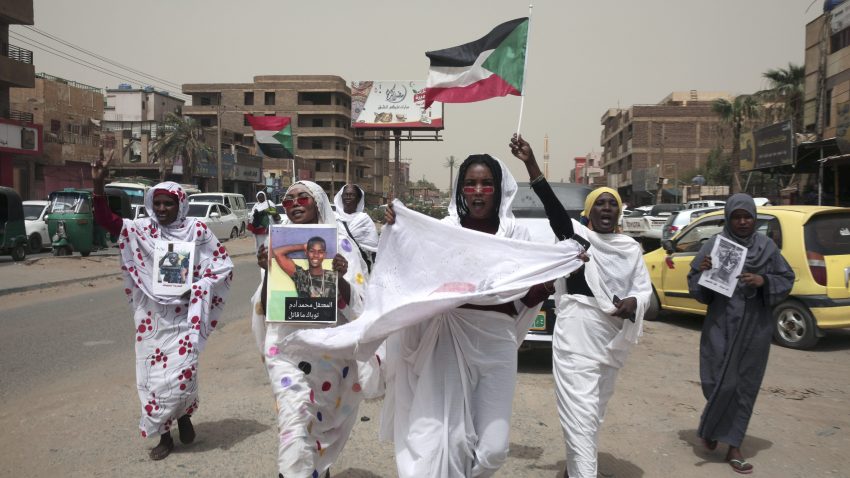Sudanese women were at the forefront of the April 2019 pro-democracy protests that toppled the 30-year dictatorship of former President Omar al-Bashir. Some went on to serve in prominent positions in the short-lived transitional government that followed, including as Cabinet ministers and as the country’s chief justice, until a coup in October 2021 sidelined civilian political leaders.
Today, with hopes for a brighter future dashed by the civil war that erupted between the Sudanese armed forces and the paramilitary Rapid Support Forces, or RSF, just over a year ago, women continue to play pivotal roles as peacebuilders and humanitarians. But they have been entirely sidelined in decision-making and efforts to end the violence. After a year of war, it’s time to include women at the negotiating table.
The war in Sudan has led to the largest internal displacement crisis in the world, with over 10 million people having been forcibly displaced from their homes. Among them, women and girls are particularly vulnerable. Since the start of the conflict, they have been subjected to conflict-related sexual violence and gender-based violence, including sexual assault, sexual slavery, widespread rape, and child and forced marriage. As Hala Al Karib, regional director of the Strategic Initiative for Women in the Horn of Africa, or SIHA, stated in remarks before the United Nations Security Council, “The gendered nature of the conflict became clear mere hours after the fighting began. The first case of gang rape was reported at noon on April 15, inside a woman’s home in Khartoum.”

